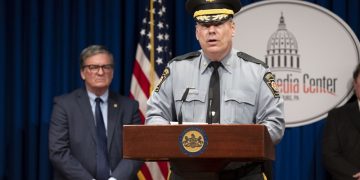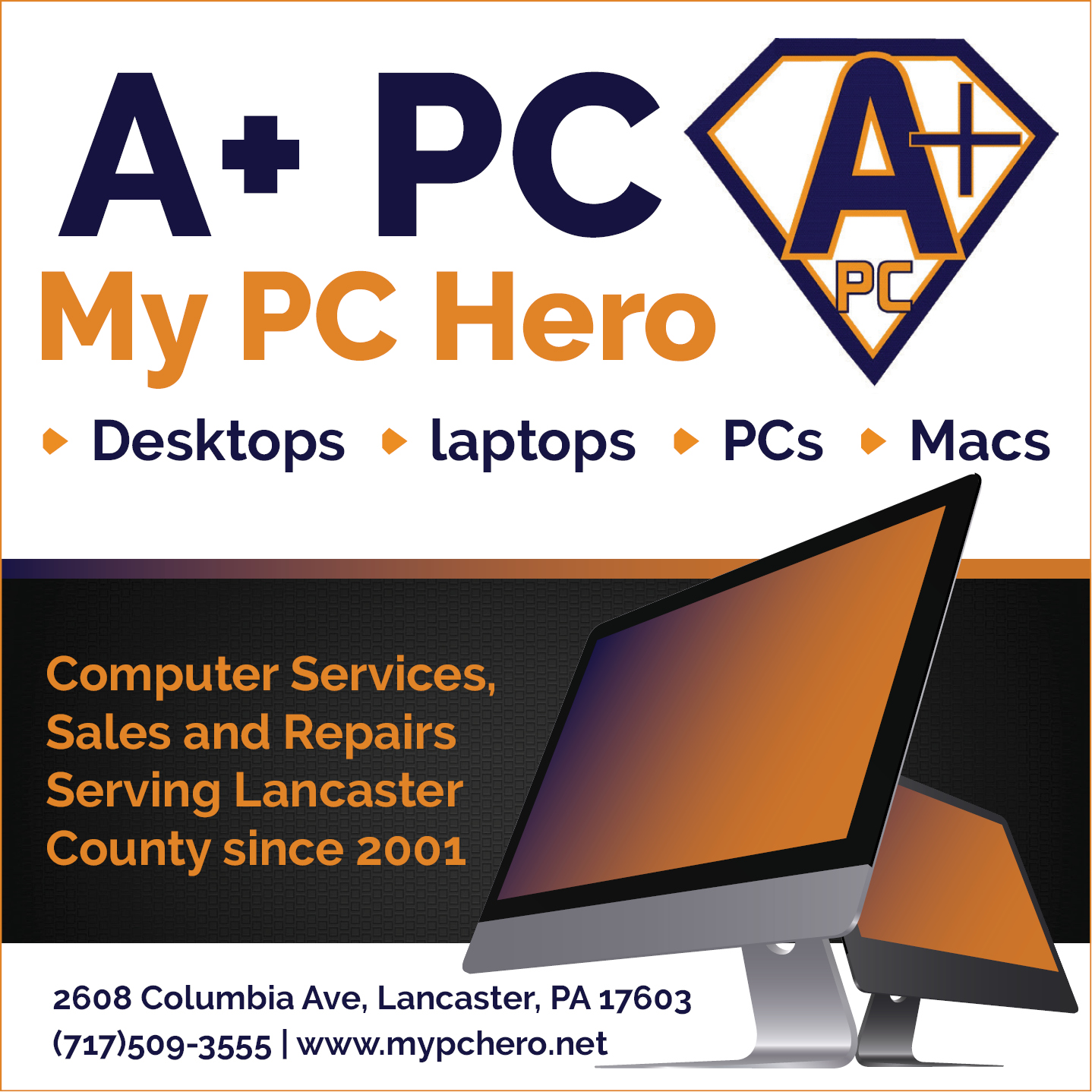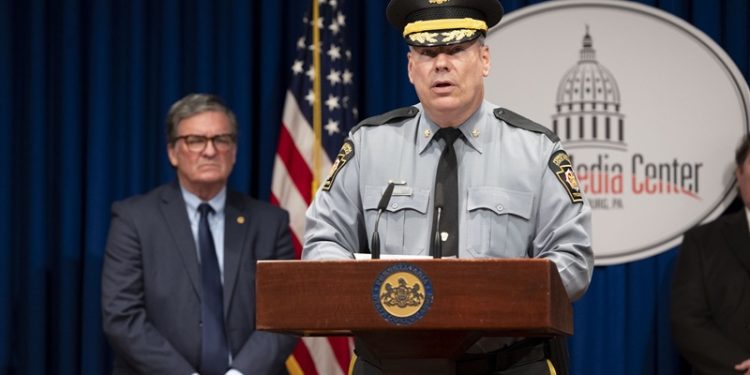As of June 5, 2025, Pennsylvania’s new Paul Miller’s Law gives police the power to pull over any driver seen holding a cellphone while behind the wheel. The legislation bans the use of handheld communication devices while operating a vehicle in the Commonwealth, aiming to reduce distracted driving.
The law is named in memory of Paul Miller Jr., a 21-year-old Scranton man killed in 2010 when a tractor-trailer driver allegedly reached for his phone and crashed head-on into his vehicle. Paul’s mother, Eileen Miller, has been an advocate for such legislation for over a decade, fulfilling a promise to her son to fight for this change. “We will be saving lives, and that was always my main goal,” she stated.
The prime sponsor of the bill, State Senator Rosemary Brown (R-Lackawanna, Monroe, Wayne) expressed her deep satisfaction, stating, “Seeing this law go into effect is incredibly rewarding knowing it will save lives.” She called it a “commonsense policy,” emphasizing, the importance of drivers remembering “that the cell phone has become the most consistent, repetitive, and lengthy distraction behind the driver’s wheel causing significant public safety concerns. This law will change behaviors and save lives.”
Under Paul Miller’s Law, drivers are prohibited from using at least one hand to hold or support, dialing or answering by pressing more than a single button, or reaching for an interactive mobile device in a manner that requires maneuvering out of a seated driving position. This prohibition applies even when the vehicle is temporarily stationary due to traffic, a red light, or other momentary delays. An “interactive mobile device” is broadly defined to include handheld wireless telephones, smartphones, portable computers, or similar devices used for voice communication, texting, emailing, Browse the internet, instant messaging, playing games, taking or transmitting images, recording or broadcasting videos, and creating or sharing social media.
The legislation includes several key exceptions. Drivers can still use their devices for emergency notification purposes or to communicate with law enforcement or emergency services to prevent injury. Hands-free use, such as voice-activated systems or devices integrated into the vehicle for calls, GPS, or music, remains permitted. The law also includes exceptions for amateur radio operators, emergency service responders in emergency vehicles, and commercial drivers operating under specific federal regulations.

“Paul Miller’s Law is about saving lives,” said PennDOT Secretary Mike Carroll, urging drivers to put phones out of reach. Pennsylvania State Police Commissioner Colonel Christopher Paris affirmed that the PSP will enforce the new law to its full extent, emphasizing, “Just one second of inattention can result in irreversible consequences.”
For the initial 12 months, law enforcement will issue written warnings for violations of the new hands-free rule. A $50 fine, plus court costs and other fees, will take effect starting June 6, 2026. Beyond summary offenses, the law significantly increases penalties for serious crashes: a conviction for homicide by vehicle due to a violation of this law could result in an additional five years of confinement, and aggravated assault by vehicle could lead to an additional two years.
In a move aimed at preventing bias in policing, Paul Miller’s Law also mandates data collection on all self-initiated traffic stops. Law enforcement officers are required to collect information including the reason for the stop, the perceived race, ethnicity, and gender of the driver, whether a search was conducted and its results, and the outcome of the stop. This data will be compiled into an annual public report by the Pennsylvania State Police or a designated third party.
According to PennDOT data, Pennsylvania recorded 9,950 crashes involving distracted drivers in 2024, resulting in over 6,000 injuries and 49 fatalities. In 2023, distracted driving crashes, numbering over 11,200, surpassed alcohol-related incidents.
While Paul Miller’s Law has garnered broad support among politicians, some critics argue the legislation represents governmental overreach. Luke Saint, president of Future of Christendom and author of The Sound Doctrine of Theocracy, told The Lancaster Patriot that such laws represent an unwelcome expansion of state power. Saint articulated his core opposition by stating, “I believe that it is wrong to subjugate America further in the name of safety. With every new law passed, our lives become less like the America that our founders envisioned and more like free time in the prison yard. Public safety does not occur by decree from the state.”
Saint further posited that “God’s law is not preemptive; it fosters and celebrates safe traditions and customs by its very nature,” contending that governmental efforts to force safety upon a populace ultimately “lower the actual standards of safe practices.”
Saint’s stance is rooted in his advocacy for theonomy, a Christian system of government wherein God’s law is presented as the standard of justice. From this perspective, critics frequently raise concerns about ever-increasing legislation, contending that it represents an incremental expansion of state control and also questioning if similar prohibitions on activities like eating while driving or applying makeup could follow. They contend that punishment should primarily follow actual harm or damage caused, rather than strict enforcement of laws that compel law enforcement officers to intervene based on non-harmful actions. Furthermore, some have suggested that specific bans on handheld device use might paradoxically encourage drivers to attempt to conceal their phones from the view of police, potentially causing longer glances away from the road in an effort to avoid detection.





























Section 3316.1 Prohibiting use of interactive mobile device.
(a) Motor vehicle. — Except as provided under subsection (b), no DRIVER shall use an interactive mobile device while DRIVING a MOTOR VEHICLE.
In subsection (1), Definitions, “driving” is defined as follows:
Driving.” OPERATING a MOTOR VEHICLE on a HIGHWAY, including while the MOTOR VEHICLE is temporarily stationary because of TRAFFIC, a traffic control device, or other momentary delay. The term does not include operating a motor vehicle if the driver moves the vehicle to the side of or off of a highway and halts in a location where the vehicle can safely remain stationary.
This new legislation is worded a lot like 75 Pa. C.S.A. Vehicles, Section 1622 (e). Handheld mobile telephone, where we read the definition of “Driving.”
“Driving.” Operating a COMMERCIAL motor vehicle or motor CARRIER vehicle on a highway, with the motor running, including while the COMMERCIAL motor vehicle or motor CARRIER vehicle is temporarily stationary because of TRAFFIC, a traffic control device, or other momentary delay. The term does not include operating a COMMERCIAL motor vehicle or motor CARRIER vehicle with or without the motor running if the driver moved the vehicle to the side of or off of a highway and halted in a location where the vehicle can safely remain stationary.
The new Section 3316.1 read very much the same as 75 Pa. C.S.A. Vehicles, Section 1622 that has been effect since at least 2020 the only difference being the removal of the term “commercial” before motor vehicle.
Traffic – Pedestrians, ridden or herded animals, vehicles, streetcars, and other conveyances, whether singly or together, using any highway FOR PURPOSES OF TRAVEL. Section 102, Definitions
Trafficway.” – The entire width between property lines or other boundary lines of every way or place of which any part is OPEN to the public for the purposes of VEHICULAR TRAVEL as a MATTER OF RIGHT or custom. – Section 102, Definition in Title 75 Pennsylvania Vehicle Code.
“Open.” -verb – To render accessible and not closed. Black’s Law Dictionary, 5t. Edition.
The Department of Transportation has the authority to license and regulate commercial carriers using the public trafficways as a place of commercial business, This is because the pubic highways are OPEN to the public only for vehicular travel as a matter of RIGHT.
“Travel” is not defined in Title 75, Section 102 Definitions because Title 75 does not apply to and regulate non-commercial private family travel on the trafficways.
Travel – To go from one place to another at a distance. To journey is spoken of as a voluntary change of place. Black’s Law Dictionary, 5th. Edition.
How can non-commercial vehicles used solely for non-commercial private travel on the public highways in a family automobile for private family purposes be licensed?” The right of a man to travel in the family automobile over OPEN public highways cannot be turned into a privilege and licensed.
Perhaps this new regulation is based on registering the family automobile as a “Passenger car?”
“Passenger car.” A motor vehicle designed primarily for the TRANSPORTATION of PERSONS and primarily USED for the TRANSPORTATION of PERSONS. Title 75 Definitions.
“Transportation.” The movement of goods or PERSONS [i.e., paying passengers] from one place to another, BY A CARRIER.
“Carrier.” Individual or organization ENGAGED in transporting PASSENGERS or goods FOR HIRE.
“Engage.” To EMPLOY or involve oneself or take part in, to embark on.
“Hire.” COMPENSATION for the use of a thing, or the labor or services.
“Compensation.” Remuneration for services rendered, whether in salary, fees, or commissions. Giving an equivalent or substitute of equal value. Consideration. The price paid for enjoying a privilege purchased.
Question – Your family automobile was designed primarily for the COMMERCIAL TRANSPORTATION of passengers by an individual carrier for hire, compensation, and profit. BUT, are you primarily USING your family automobile for the TRANSPORTATION of PERSONS or PASSENGERS for HIRE?
If you are not, then why did you voluntarily register your family automobile as a “passenger car” or motor vehicle used for the commercial transportation of passengers for hire by a carrier?
Did you know that generally speaking, the majority of APPLICANTS for a Pennsylvania driver’s license will be OPERATORS of regular PASSENGER vehicles, pick-up trucks, or vans.
Everyone with a driver’s license is presumed to be a “commercial driver” if he or she is OPERATING or DRIVING an automobile that has been registered as a “passenger car.”
Is the “civil government forcing safety upon a populace,” as Luke Saint suggests, or have the populace volunteered to be regulated by voluntarily registering their non-commercial family automobile as a commercial passenger car engaged in the commercial transportation of passengers for hire?
I just read the legal transcript of the law. I did not see, in the signed law, where there is an exception for Amature Radio Operators. Can anyone please cite the section and paragraph (of the signed statute) where this exception is actually located.
I did read a proposed version, before approval, that went up for approval. This proposed version included the exception. But, the exception appeared to be lined out.